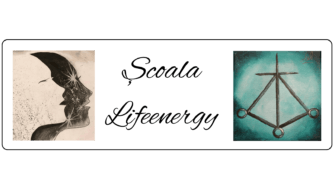
Acupuncture as a Therapy and Its Benefits
Acupuncture is a thousand-year-old practice that originated in traditional Chinese medicine (TCM). It involves inserting very thin needles into specific points on the body to balance energy, or “Qi” (pronounced “chi”). In recent decades, acupuncture has gained global recognition as a valid form of complementary and alternative therapy, being used for a wide range of conditions.
Fundamental Principles of Acupuncture
Acupuncture is based on the concept of Qi, which is the vital energy that circulates through the body on meridians or energy channels. In TCM, health is seen as the result of a harmonious and balanced flow of Qi. Any blockage or imbalance in this flow can lead to illness and discomfort. Acupuncture aims to restore the balance and free flow of Qi by stimulating specific acupuncture points, which are located along the meridians.
- Meridians and Acupuncture Points
- The meridians are invisible channels through which Qi circulates in the body. There are 12 main meridians, each associated with a major organ and having specific acupuncture points. In addition to these, there are also secondary meridians and extra-meridian points used in treatments.
- Yin and Yang
- Another essential concept in TCM is the balance between Yin and Yang, the two opposing but complementary forces in the universe. Health is seen as a state of balance between these two energies. Acupuncture helps restore this balance by stimulating acupuncture points to balance Yin and Yang.
How Acupuncture Works
The exact mechanisms by which acupuncture works are not fully understood from the perspective of Western science, but there are several theories that explain its beneficial effects:
- Inserting needles can stimulate peripheral nerves, sending signals to the brain and spinal cord. This can lead to the release of neurotransmitters and endorphins, which help reduce pain and improve well-being.
- Acupuncture can increase blood circulation to the treated areas, bringing in more oxygen and nutrients and helping to eliminate toxins while also contributing to the healing and tissue regeneration process.
- By influencing the body’s various regulatory systems, acupuncture can help balance immune responses, making the body more resistant to infection and disease.
- Acupuncture has anti-inflammatory effects, helping to reduce local inflammation.
Benefits of Acupuncture
- Acupuncture is famous for its effectiveness in managing chronic and acute pain. It is successfully used in treating back pain, headaches, migraines, arthritis, menstrual pain, and more. Inserting needles at the appropriate points can significantly reduce pain and improve mobility.
- By balancing Qi and stimulating the release of endorphins, acupuncture can help reduce stress and anxiety levels. Many patients report a general state of relaxation and well-being after acupuncture sessions.
- Insomnia and other sleep disorders can be relieved by acupuncture, helping to relax the nervous system and regulate sleep cycles.
- Acupuncture can help strengthen the immune system, making the body more resistant to infection and disease.
- Digestive problems such as irritable bowel syndrome, acid reflux, and constipation can be effectively treated with acupuncture. It stimulates digestive function and promotes balance in the gastrointestinal tract.
- Acupuncture is used in the treatment of fertility problems, in regulating the menstrual cycle, in relieving menopausal symptoms, treating polycystic ovaries and endometriosis.
Application of Acupuncture in Various Fields
- Athletes and physically active people use acupuncture to treat injuries, reduce pain and inflammation, and speed up recovery after intense training or competition. Acupuncture can help maintain performance and prevent injury.
- Acupuncture is increasingly being used as a complementary therapy in the treatment of depression, anxiety, and other mental disorders. By balancing Qi and regulating neurotransmitters, acupuncture can improve mood and quality of life.
- Acupuncture is very effective in treating women’s specific health problems, menstrual pain, menopausal symptoms. It provides a natural and non-invasive approach to managing these conditions.
- Acupuncture can be used to support recovery after surgery. It helps reduce post-operative pain, speed up healing, and reduce the risk of complications.
Conclusion
Acupuncture is a powerful complementary therapy with significant benefits for a wide range of conditions. From pain management and stress reduction to supporting reproductive and mental health, acupuncture offers a holistic approach to improving health and quality of life. By balancing Qi and restoring harmony in the body, acupuncture not only treats symptoms but also addresses the root causes of disease. It is important for patients to consult with a qualified acupuncture practitioner to ensure that they are receiving appropriate and safe treatment. In conclusion, acupuncture remains a valuable and effective option in the arsenal of integrative medicine.
Our Therapies
-

Acupunctură (Londra)
60.00£ -

Constelații Sistemice / Familiale De Grup (Londra)
150.00£ -

Terapii Individuale
80.00£ -

Constelații Online – Karma (Grup)
60.00£ -

Constelații Online – Copilul Interior (Grup)
60.00£ -

Constelatii Online – Cele 5 elemente (Grup)
-

Respirație Conștientă (Londra)
650.00£ -

Hipnoterapie / Regresie
150.00£ -

Constelații Online – Adicții (Grup)
60.00£ -
Sale!

1. Reconectarea cu energiile primordiale
Original price was: 42.00£.0.00£Current price is: 0.00£. -
Sale!

2. Reconectarea cu puterea pământului
Original price was: 42.00£.0.00£Current price is: 0.00£. -
Sale!

3. Vindecarea copilului interior
Original price was: 42.00£.9.99£Current price is: 9.99£.




0 Comments